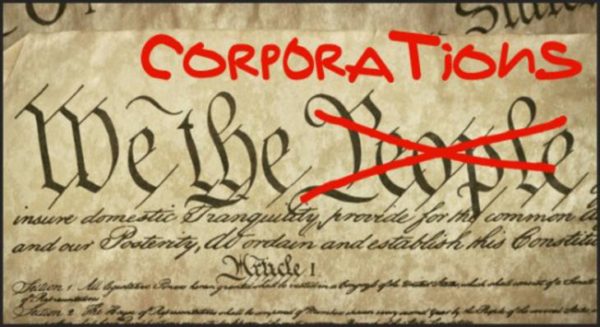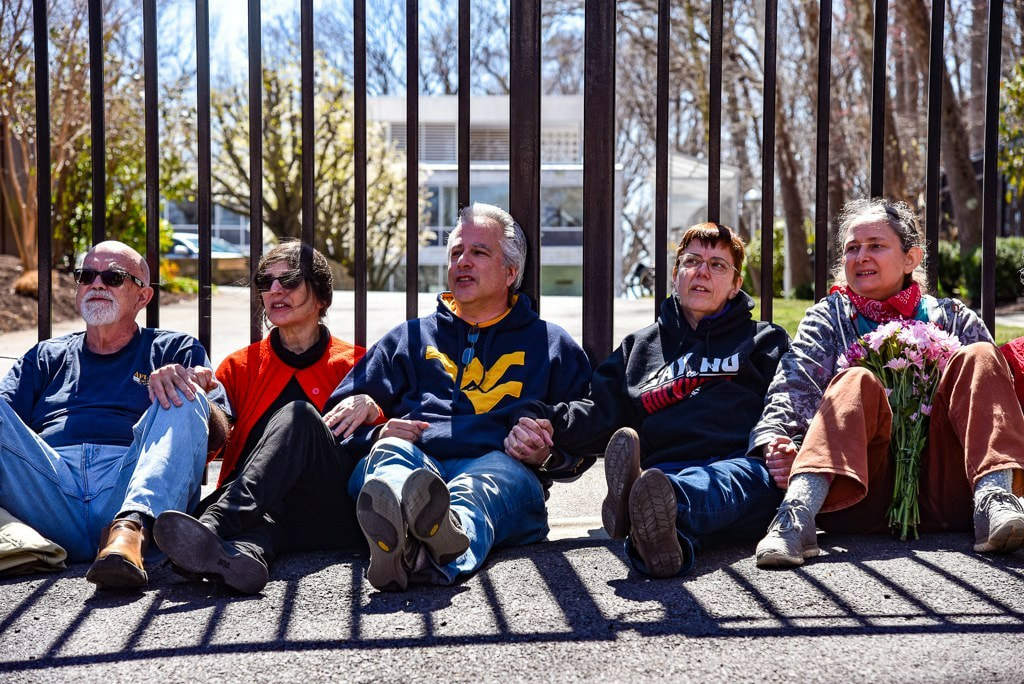 Grant Township, PA Grant Township, PA A whiplash of partial victories and partial defeats in the MidAtlantic pipeline landscape remind that partial pathways through existing regulatory structures will never be enough to truly protect communities and the environment from a system of spotty regulation, eminent domain, and corporate rights functioning as designed. In the realm of partial victory, on September 10 the Philadelphia federal Third Circuit Court of appeals overturned a lower court ruling, and the ruling of the Federal Energy Regulatory Commission, to halt eminent domain seizures for the PennEast Pipeline through New Jersey. PennEast Pipeline Co. representatives insist they are “committed to moving ahead with the project.” Nonetheless, local groups resisting the pipeline are thrilled to stall it once again. Similarly, in the ongoing fight against the Mariner East pipeline, residents and advocates alike celebrated the Pennsylvania Department of Environmental Protection’s late August assessment of over $319,000 in fines against Sunoco Pipeline LP for failing to follow clean stream, erosion, and other environmental regulations in its construction sites in ten counties. However, these partial victories, when seen in the context of the broader pipeline landscape, make clear the desperate need for community rights and rights of nature. When local political will is lacking, or when Federal pre-emption is asserted, or when the regulatory apparatus functions as designed, as in the late August Federal Energy Regulatory Commission’s decision that the Constitution Pipeline in New York can move forward, there is little recourse communities can turn to stop these projects. Even in the PennEast Pipeline stall "The appellate court said the pipeline still could proceed with a "workaround," and remanded the case back to the lower court." Battling each individual pipeline in court is a lengthy and expensive process, that can stall, but rarely stop, a project from moving forward. We can appreciate these short-term victories, and it’s understandable that we try to use existing agencies and courts to protect our communities. But without a constitutional amendment to protect community and environmental rights, these battles will almost always be stop-gaps, rather than lasting protection. Furthermore, stalling one pipeline in one town does not help other towns fighting pipelines in other places. At some point, we must stop fighting environmental harms one at a time, and instead pursue lasting change. For lasting change, we need a Constitutional Amendment on Community Rights.
0 Comments
 It all started, as most of these things do, with a company’s application for a permit. In May of 2013, Pennsylvania General Energy (PGE) applied for a permit from the Environmental Protection Agency to convert one of its gas extraction wells in Grant Township, Indiana County, PA, into an injection well. The company wanted to dump frack wastewater from its other wells. According to their own estimates, PGE proposes to dump more than 151 million gallons of frack wastewater into Grant Township over a ten year period — wastewater that the company’s own sampling reveals will contain toxic and radioactive materials such as barium, radium, strontium, and toluene. The people of Grant Township rely on private wells for drinking water. They decided to stop the project. Working with their elected officials, they adopted a law recognizing the rights of residents to clean air and clean water, and banned frack wastewater injection wells as a violation of those rights. They understood that the corporation could sue the Township for its adoption of the law. Thus, the Township included provisions elevating residents’ rights above the “rights” routinely claimed by corporations. Predictably, the company sued, claiming that its “rights” had been violated by the Township and that the Town- ship lacked the power to adopt the law in the first place. In its defense of the Township, CELDF lawyers argued that the people of Grant possess a constitutional right of local community self-government, and that the company’s assertion of its “rights” to override Grant Township constituted an unconstitutional violation of that right of self-government. Thus, CELDF lawyers contended that it wasn’t the Township that had violated the corporation’s “rights,” but the other way around. Of course, corporations have long used these types of lawsuits to “chill” communities from interfering with company plans, and from making those arguments in court. Lately, however, that “chilling” effect hasn’t been working. As more and more communities have come into the cross-hairs of corporations proposing pipelines, frack wells, and a variety of other projects, community members are advancing democratic and environmental rights to stop them. And so the corporations have begun to come after the lawyers, believing that if they can scare the lawyers off, they will deprive the communities of legal representation. Three years after the company sued Grant Township, it filed a motion for sanctions against CELDF lawyers Thomas Linzey and Elizabeth Dunne, seeking over half a million dollars from the two of them. The company asserted that CELDF’s arguments in the case — that the community has a constitutional right to govern itself, and a right to stop these types of harmful projects — was frivolous. Corporate attorneys asserted that the arguments were advanced solely to harass the company and drive up its litigation costs. On January 5, 2018, Judge Susan Baxter granted part of PGE’s motion, awarding $52,000 in fees against attorneys Linzey and Dunne. Holding that “settled law opposes [their] arguments” and that the “community rights” doctrine had been “discredited and previously litigated,” she ordered the attorneys to pay part of the company’s original request for sanctions. Judge Baxter’s ruling is unusual. Attorneys are, and have always been, allowed to argue for good faith changes to the law. In fact, that’s part of how major strides were made in prior people’s movements where rights-based legal arguments were advanced to end segregation, gain women’s right to vote, and gain the right to same sex marriage. It is no coincidence that as people reclaim Community Rights and recognize Rights of Nature, corporate and institutional hostility has escalated. That escalation, while challenging, is evidence of the movement’s success in its own right. CELDF views the sanctions as part of a new strategy by companies to punish lawyers for representing communities like Grant. In a statement put out by Grant Township, the Board of Supervisors declared that: “We understand that the system of law that we live under doesn’t recognize the right of the people who live here to stop those projects which will harm us. It doesn’t recognize that we have a democratic right to say “no,” which is why we’ve worked with CELDF to advance arguments that we have a constitutional right to govern our own community, and that companies like PGE shouldn’t have more rights to decide what happens here than we do. It’s Grant Township’s hope that our attorneys will wear this slap as a badge of courage, just as any front line veteran would wear a scar. This is bigger than just Grant Township, and we want others to join this fight by standing up to protect their communities. We’re not going anywhere.” Attorneys Linzey and Dunne have appealed the sanctions to the Third Circuit Court of Appeals. This piece was originally published at https://celdf.org/2018/05/when-good-faith-is-punishable-by-sanctions/.  PACRN has been busy & you can be a part! The Pennsylvania Community Rights Network has been busy over the past six months preparing, training, and promoting a Constitutional Amendment in the Pennsylvania legislature. We have also been making contacts to roll out our new initiative, The Alarm. These are two of the major projects we are focusing on this year in order to push our message to every county in the state, as well as to every legislator who represents We the People. Read on and see what we are doing, and how you can be a part of it... PA Constitutional Amendment Pennsylvania Community Rights Network Board members have been traveling to Harrisburg to meet with our elected officials over the past few weeks, and we will continue these meetings in the months to come. We have been talking with our legislators (and yours) about passing an amendment to the PA Constitution that would allow our communities the right of Local Self-Government. We are seeking the right for our communities to be able to enact laws that protect our health and safety and welfare. It is hard to believe, but we don't presently have the legal right to these things. Laws have been written and interpreted in a way that allows outside, harmful corporations to come in and exploit our communities for the corporations' own benefit. The fundamental human rights of our neighbors would remain in tact, but we are asking for greater power in saying "NO" to unwanted, destructive activities like injection wells, fracking, sludge, factory farms, and export pipelines. We want to hear from you! Drop us a line at info@pacommunityrights.org or contact us here.  The author, center, protesting Rockwool at the Danish embassy in Washington, DC./Photo by Anne Meador The author, center, protesting Rockwool at the Danish embassy in Washington, DC./Photo by Anne Meador The extinction reality we face can be scary...but there is are solutions! We just have to be willing to act. Our own Ben Price, a PA resident and the national organizing director for the Community Environmental Legal Defense Fund (CELDF), is featured in this article about what we can do by David Levine. By David Levine The UN’s alarming report on declining biodiversity and accelerating extinction rates is making headlines and generating clicks and shares on social media. Based on “overwhelming evidence” from a “wide range of different fields of knowledge,” the report paints an “ominous picture,” says Sir Robert Watson, who chairs the Intergovernmental Science-Policy Platform on Biodiversity and Ecosystem Services that issued the report. One million species are threatened with extinction, and the planetary ecosystem that supports human life is declining at unprecedented rates. “The health of ecosystems on which we and all other species depend is deteriorating more rapidly than ever,” Watson continues. “We are eroding the very foundations of our economies, livelihoods, food security, health and quality of life worldwide.”... ...Ben Price, national organizing director for the Community Environmental Legal Defense Fund (CELDF) and author of the upcoming book How Wealth Rules the World: Saving Our Communities and Freedoms from the Dictatorship of Property, states that the most effective actions can be taken at the local level. “It’s time for people to stop waiting for state and federal governments to protect the natural environment,” said Price. “Every community in the country should enact laws that recognize the inalienable rights of ecosystems to exist, flourish and naturally evolve, and the authority of the community to protect their natural habitats, free from preemption, and unharassed by claims of corporate rights.” Click here for the full article... |
AuthorPACRN is a 501c3 nonprofit dedicated to helping Pennsylvania communities establish local self-governance, social justice, Archives
March 2021
Categories
All
|
Telephone207-541-3649
|
info@pacommunityrights.org
Donate |

 RSS Feed
RSS Feed